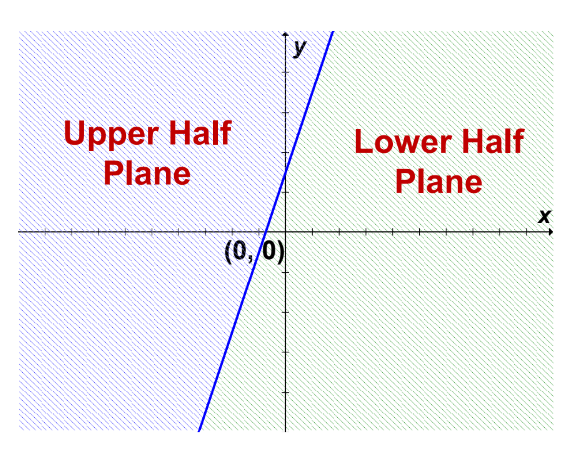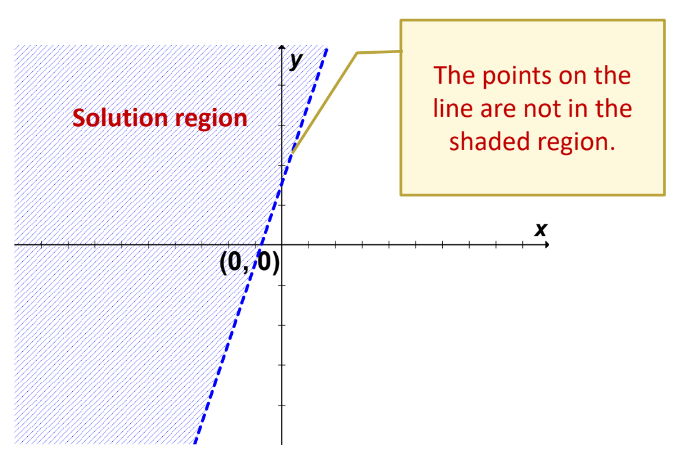Linear Inequalities – Complete Guide For Class 11 Math Chapter 5
Welcome to iPrep, your one-stop destination for all your learning needs. Our learning resources for Mathematics Class 11 ‘Linear Inequalities’ chapter 5 are designed to ensure that you grasp this concept with clarity and perfection. Whether you’re studying for an upcoming exam or strengthening your concepts, our engaging animated videos, practice questions, and notes offer you the best of integrated learning with interesting explanations and examples.
Our comprehensive approach ensures that you have access to everything you need to have an in-depth understanding of the chapter Linear Inequalities. From detailed notes to interactive exercises, our materials are tailored to meet your learning needs and help you excel in your studies. Get ready to dive into an enriching educational experience that will make mastering this chapter a breeze.
Introduction To Linear Inequalities
Linear inequalities involve mathematical expressions where two quantities are compared using inequality symbols (>, <, ≥, ≤). In Class 11, this chapter covers solving linear inequalities in one or two variables and graphically representing them on the number line or coordinate plane. Key concepts include understanding the rules for manipulating inequalities, such as adding or subtracting both sides by the same value and multiplying or dividing by a positive or negative number. Solving real-life problems through linear inequalities also plays a significant role, making this topic essential for logical reasoning and analysis.
Now let’s learn about Linear Inequalities in detail

- A balance can be used to represent inequalities.
- The balance shows that the right side is heavier than the left side. Thus, we can say:
Weight on the left side < Weight on the right side
Inequalities
Two real numbers or two algebraic expressions related by the symbols form an inequality:
<, >, ≤, or ≥
Types of Inequalities
| Type | Example |
| Less than | 2 < 3 |
| Greater than | 7 > 4 |
| Less than or equal to | x ≤ 4 |
| Greater than or equal to | y ≥ 5 |



Algebraic Solutions: One Variable
Consider the inequality x + 4 < 10.
If x = 0, then 0 + 4 < 10 is true. If x = 1, then 1 + 4 < 10 is true.
…
If x = 6, then 6 + 4 < 10 is false.
Thus, all real numbers less than 6 are solutions. The solution set is:
x < 6
Addition and Subtraction Properties of Inequalities
For all numbers a, b, and c:
- If a > b, then a + c > b + c and a – c > b – c.
- If a < b, then a + c < b + c and a – c < b – c.
Example
Solve: m + 4 < 9
- Subtract 4 from both sides: m < 5
- Any number less than 5 satisfies the inequality.
Multiplication and Division Properties of Inequalities
For all integers a, b, and c (where c > 0):
- If a > b, then ac > bc and a/c > b/c.
- If a < b, then ac < bc and a/c < b/c.
Example
Solve: 4m < -28
- Divide both sides by 4: m < -7
- Any number less than -7 satisfies the inequality.
Multiplication/Division by Negative Numbers
When multiplying or dividing by a negative number, the inequality reverses.
For all integers a, b, and c (where c < 0):
- If a > b, then ac < bc and a/c < b/c.
- If a < b, then ac > bc and a/c > b/c.
Example
Solve: m / -3 < 4
- Multiply both sides by -3 (reverse inequality): m > -12
Real-Life Example
Preeti earned interest of Rs 400 and Rs 550 in the last two years. How much must she earn this year to have an average earnings of more than Rs 600?
Let x be the amount Preeti needs to earn.
Average earnings = (400+550+x)/3 > 600
According to the given condition – (400+550+x)/3 > 600
Solve for x:
- Multiply both sides by 3: 950 + x > 1800
- Subtract 950 from both sides: x > 850
Thus, Preeti needs to earn more than Rs 850.
Graphical Representation: One Variable
Consider the inequality x < c.
The graphical representation is:

- The arrow points to numbers less than c.
- The circle at c is open, meaning c is not included.



Graphical Inequalities: Two Variables
A line divides the coordinate plane into two parts, each representing a half-plane.
For example:
- A vertical line divides the plane into left and right half-planes.
- A non-vertical line divides the plane into upper and lower half-planes.


Graph of Inequalities
If the inequality is of the form ax + by ≤ c or ax + by ≥ c, draw a solid line. This includes points on the line in the solution.

If the inequality is of the form ax + by < c or ax + by > c, draw a dotted line. Points on the line are not included in the solution.

Example
Solve 3x + y ≥ 4 graphically.
Step 1: Write the inequality as 3x + y = 4.
Step 2: Graph the line 3x + y = 4.

The inequality is of the form ≥, so draw a solid line. Shade the region above the line.

Solution of System: Two Variables
A system of inequalities consists of two or more inequalities. The solution is the region where the shaded areas overlap.
Example
Solve the following system graphically:
x+y ≤ −2 and x−2y ≥ 7
Step 1: Write the inequalities as equations:
- x + y = -2
- x – 2y = 7
Step 2: Graph both equations. The solution is the overlapping shaded region.

Let’s Conclude
In conclusion, CBSE Class 11 Math Chapter 5, Linear Inequalities, is a fundamental component of your mathematical toolkit. Understanding and mastering this chapter will provide you with essential skills for solving real-life problems and enhance your logical reasoning capabilities. Our iPrep resources, including interactive exercises, detailed notes, and engaging videos, are meticulously designed to help you grasp the nuances of Linear Inequalities with ease.
By exploring the concepts of one-variable and two-variable inequalities, their graphical representations, and real-world applications, you’ll be well-equipped to tackle various mathematical challenges. Remember, whether you’re dealing with simple inequalities or complex systems, the principles of Linear Inequalities will guide you through.
Dive into Class 11 Math Chapter 5 with iPrep and experience a comprehensive learning journey that will not only prepare you for exams but also enrich your overall understanding of mathematics. With our support, mastering Linear Inequalities has never been easier or more enjoyable.
Practice questions on Chapter 5 - Linear Inequalities
Get your free Chapter 5 - Linear Inequalities practice quiz of 20+ questions & detailed solutions
Practice Now








